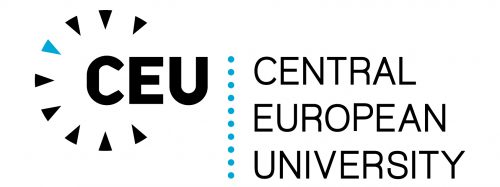Conference: Critical Approaches to Romani Studies
Online conference organized by the Romani Studies Program at Central European University
in partnership with the European Roma Institute for Arts and Culture
31 May – 4 June 2021
Roma have been an object of academic inquiry for centuries. In spite of the increasing number of articles, studies, and books, especially since the collapse of communism, Roma participation in shaping the discourses on themselves has remained very limited. In the name of scientism and objectivity, Roma have been de facto excluded from knowledge production.
Recently, an increasing number of activist scholars has been urging a paradigm shift in Romani Studies to challenge the dominant academic and policy discourses. They propose inquiries into the forms of oppression Roma are facing, the importance of racism and structural discrimination for Roma and Romani identity. The conference brings together junior and senior, Roma and non-Roma scholars embracing critical approaches.
This year’s conference includes a special panel on the restitution of Romani artworks and artefacts. Recent struggles for racial justice and decolonization force cultural institutions, museums, and galleries all over the world to critically reflect on their past, their exhibited objects, and their present narratives. Similarly to that of other colonized communities, Romani culture has been perceived and studied as “exotic”, “oriental”, “primitive”, and “naïve art”. Romani artefacts and artworks have been “collected” by museums and galleries all over Europe.
Selected papers will be published in the open access journal Critical Romani Studies. Earlier issues are available at https://crs.ceu.edu/
AGENDA
31 May
12.45-13.00 Welcome by Angela Kocze, Chair in Romani Studies, Central European University and Timea Junghaus, Executive Director of the European Roma Institute for Arts and Culture
13.00-14.30 panel 1: Understanding epistemic racism
Papers: Geraldine Lee-Treweek (Birmingham City University) – Loreen Chikwira (Manchester Metropolitan University) – Karen Wilkes (Birmingham City University): Romani Studies, Critical Race Theory, Black Studies and Reciprocal Learning to Change Higher Education
Eva Kourova – Ionut Cioarta : Challenging the Dominant Policy Discourse and Forms of Roma Racialisations: The Case of Ando Glasgow in Glasgow, Scotland
Ioana Tistea (Tampere University): “Reflexivity of Reflexivity” with Roma-Related Research Practices toward Epistemic Humility
Chair: Margareta Matache (Harvard University)
Discussant: Prem Kumar Rajaram (Central European University)
14.30-15.00 Coffee break
15.00-16.00 panel 2: Political voice and access to justice
Papers: Ashok Kumar Pindiga (Central European University): Oppression and Access to Justice: A Comparative Study of Roma in Europe and Dalits in India
Aidan McGarry (Loughborough University): Political Voice of Roma Communities
Chair: Violetta Zentai (Central European University)
Discussant: Marton Rovid (Central European University)
16.30-18.00 RomaMoMa panel: The restitution of Romani artworks and artefacts
Panelists: Timea Junghaus (Executive Director of the European Roma Institute for Arts and Culture)
Delaine Le Bas (Visual artist) TBC
Nanette Snoep (Director of the Etnographic Museum of Cologne)
Maria Lind (Director of Tensta konsthall, Stockholm)
Anna Szasz (Curator of the RomaMoMa project of Off-Biennale Budapest)
1 June
13.00-14.30 panel 3: Anti-Roma racism: historical manifestations and contemporary discourses
Papers: Florinela Giurgea: The Deportation of Romanian Roma to Transnistria: The Roots of the “Gipsy Problem”
Gabriela Marques Gonçalves (University Center Estácio Brasília): Hate Society: Antigypsyism and Hate Speech
Stefania Pontrandolfo (University of Verona): Anti-gypsyism in Political Discourses in Modern Italy
Chair: Maria Bogdan
Discussants: Iulius Rostas (National University for Political Studies and Public Administration, Bucharest/ European Roma Institute for Arts and Culture)
Mathias Moschel (Central European University)
14.30-15.00 Coffee break
15.00-16.30 book panel: Roma Rights and Civil Rights – A Transatlantic Comparison
Presented by the authors: Felix B. Chang (University of Cincinnati College of Law) and Sunnie T. Rucker-Chang, (University of Cincinnati)
2 June
13.00-14.30 panel 4: The representation of Roma in ethnography, popular culture and fine art
Papers: Maria Luiza Medeleanu (University of Bucharest): The Soap Opera Gipsy Heart: Representations and Perceptions
Ecaterina Puia (George Emil Palade University, Târgu Mureş): Identity and Rroma Imagology in the 19th Century
Monica Murgia (Bologna University): The Importance of Being “Gypsy”: Ethnographic Study of Indian Kalbelias “Gypsies” of Rajasthan
Chair: Jan Selling (Sodertorn University)
Discussant: Dezso Mate
14.30-15.00 Coffee break
15.00-16.30 book panel: The Roma and Their Struggle for Identity in Contemporary Europe
Roundtable discussion with the authors: Huub van Baar, Delaine Le Bas, Malachi Hacohen, Tina Magazzini, Angela Kocze, Iulius Rostas, Debra Schultz, Julia Szalai, Nidhi Trehan, Violetta Zentai.
Chair: Peter Vermeersch
17.45-20.30 Film screening and discussion
Screening of the film Gipsy Queen (1h53m)
Followed by discussion with Alina Serban, actress, protagonist of the film
3 June
13.00-14.30 panel 5: Education and social mobility
Papers: Péter Bogdan (Hungarian Academy of Sciences): Roma Mentor Project – The Roma Intellectual Friend Model
Jekatyerina Dunajeva (Central European University): Othering through Textbooks: Teaching about Roma in Contemporary Hungarian Schools
Zsanna Nyírő (Hungarian Academy of Sciences) – Judit Durst (Hungarian Academy of Sciences): Racialisation Rules: The Effect of Educational Upward Mobility on Habitus
Discussants: Marko Pecak (Roma Education Fund)
Vera Messing (Central European University)
14.30-15.00 Coffee break
15.00-16.30 panel 6: Residential and educational segregation
Papers: Norah Burns (Trinity College Dublin): Educational Segregation of Ethnic Minorities: Where Are We in 2021?
Luca Bródy, Melinda Mihály, Erika Nagy (all from Centre for Economic and Regional Studies, Hungary): The Production of Socio-Spatial Marginality in the CEE Semi-periphery – the ‘Other’ Side of Industrial Recovery
György Málovics (University of Szeged) – Boglárka Méreiné Berki (University of Szeged) – Melinda Mihály (Centre for Economic and Regional Studies, Hungary): Policy Reform Instead of Policy Transformation? Experiences of Participatory Action Research (PAR) on Desegregation Policy in Szeged, Hungary
Chair: Marek Szilvasi (Open Society Foundations)
Discussant: Giovanni Picker (Glasgow University)
4 June
13.00-14.30 panel 7: Enabling intersectionality
Papers: Laísa Queiroz (University of Brasília): Intersectionality as an Analytical Tool for Studying the Oppression of Romani Women in Brazil
Christos Iliadis (Panteion University of Social and Political Sciences, Greece): Social Inclusion, Empowerment and Access to Justice for Roma Women and Girls
Chair: Angela Kocze (Central European University)
Discussant: Nadia Jones-Gailani (Central European University)
14.30-15.00 Closing and farewell

![]()